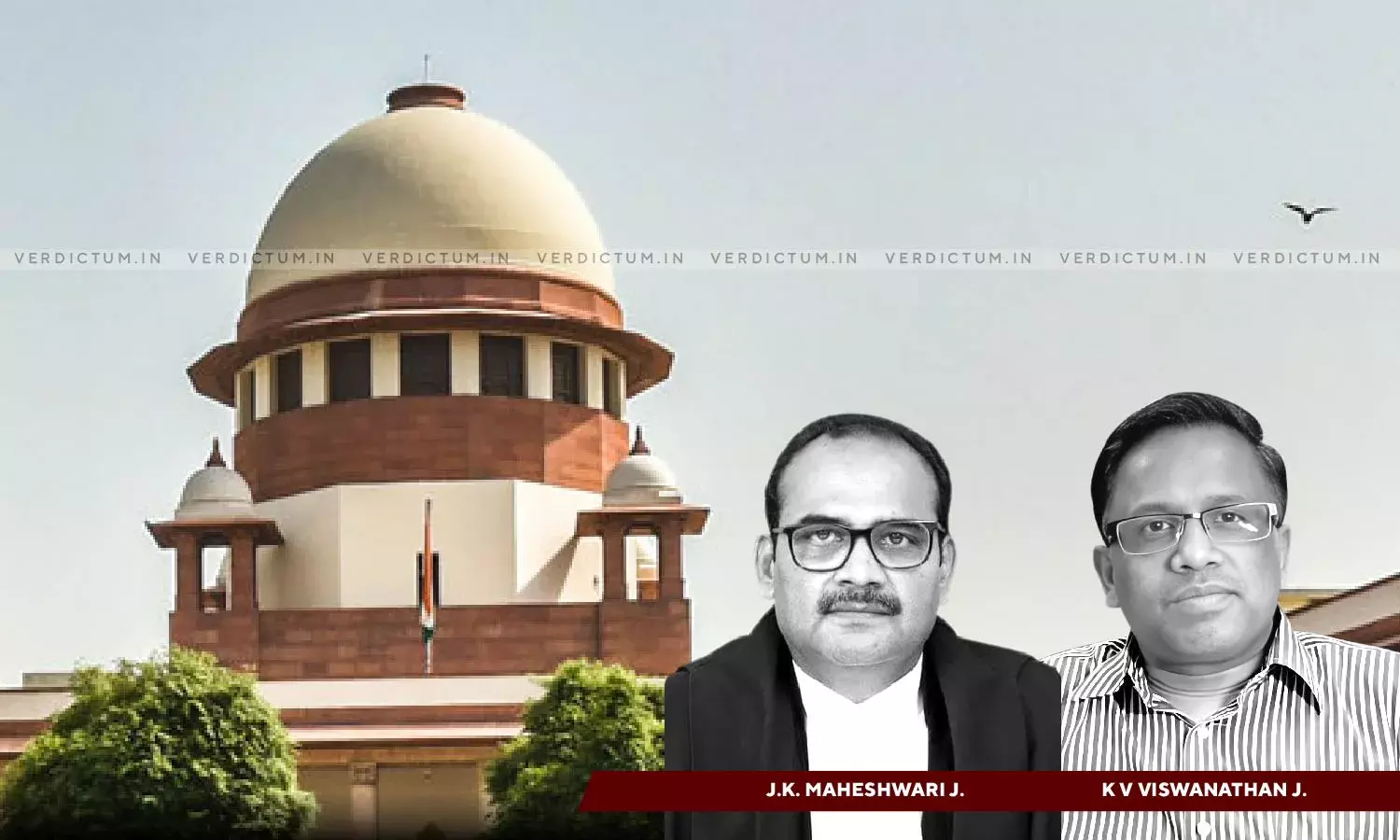"Authorities Must Not Turn Blind Eye To Undisputed Ground Realities & Compelling Necessities, They Don’t Live In Ivory Towers": SC Remarks In Tender Case
The Supreme Court in a tender-related case has said that the decision-making authorities must not turn a blind eye to the undisputed ground realities and compelling necessities and that they do not live in ivory towers.
The Court was dealing with a civil appeal in which the question that arose for consideration was whether to construe Clause 2.22.0 (ix) of the tender conditions as the law of the Medes and the Persians-rigid and unalterable, even if the justice of the cause warranted otherwise.
The two-Judge Bench of Justice J.K. Maheshwari and Justice K.V. Viswanathan held, “… we have no hesitation to hold that the deposit of the additional performance security on 17.03.2021 was in due compliance of Clause 2.22.0 (ix) of the tender conditions. There was no breach of that clause. … Decision making authorities, like the tendering authority here, could not have turned a blind eye to undisputed ground realities and compelling necessities, like the one that presented itself here. After all, they do not live in ivory towers.”
The Bench observed that in this case, no mala fide has been alleged and the interpretation as adopted by the tendering authority cannot be said to be perverse.
Advocate Amit Pathak appeared on behalf of the appellant while Advocate Prashant Shrikant Kenjale appeared for the first respondent and Advocate Uday B. Dube appeared on behalf of the tendering authority.
In this case, the Executive Engineer, Lower Wardha Project Division issued a tender calling upon interested bidders to submit their bid. The work, which was the subject matter of the writ petition before the High Court, was for "construction of land development works (Part-I) of Gadegaon main minor offtaking @ R.D. 4995 M on Nandgaon Dy''. Three bidders submitted their bids and when the financial bid was opened, the appellant’s bid was found to be the lowest.Under Clause 2.22.0 (ix), the appellant was to furnish the additional performance security within a period of two working days.
There was Saturday and Sunday and a nationwide employees strike in the nationalised banks. The additional performance security was submitted thereafter and the tendering authority, after satisfying itself of the existence of the strike, accepted the bid of the appellant and issued work order. The work commencement order was issued to the appellant, aggrieved by which the first respondent filed a writ petition challenging the work order and the work commencement order which was allowed by the Division Bench of the High Court and therefore, the appellant approached the Apex Court.
The Supreme Court after hearing the contentions of the counsel noted, “In this background, the primary question that arises is, whether the High Court was justified in setting aside the work order on the ground that the tendering authority had breached Clause 2.22.0 (ix) by accepting the additional performance security on 17.03.2021?”
The Court said that this case brings back to memory the classic words of Justice M. Hidayatullah (the then Chief Justice) in Mahanth Ram Das v. Ganga Das [1961] 3 SCR 763.
“We also do not find that the decision to accept the additional performance security on 17.03.2021 and the issuance of the work order was arbitrary and irrational. We also do not find it to be a decision, which no responsible authority acting reasonably and in accordance with law could have reached. On facts, no case of prejudice to public interest by the award of the work has also been made out”, further noted the Court.
The Court added that the High Court ought not to have interfered with the acceptance of the tender and the issuance of the work order in this case.
“We find nothing wrong in the authority having accepted the tender and awarding the work to the appellant. … Even otherwise, we have not been shown the specific clause requiring acknowledgement of the income-tax returns for five years. In any case, the tendering authority has awarded the work, after satisfying itself, about the necessary compliances. The High Court has also not found it fit to pronounce on these aspects. Hence, on this ground also, the work order cannot be set aside”, held the Court.
Accordingly, the Court allowed the appeal and set aside the order of the High Court.
Cause Title- M/s Om Gurusai Construction Company v. M/s V.N. Reddy & Ors. (Neutral Citation: 2023 INSC 760)




